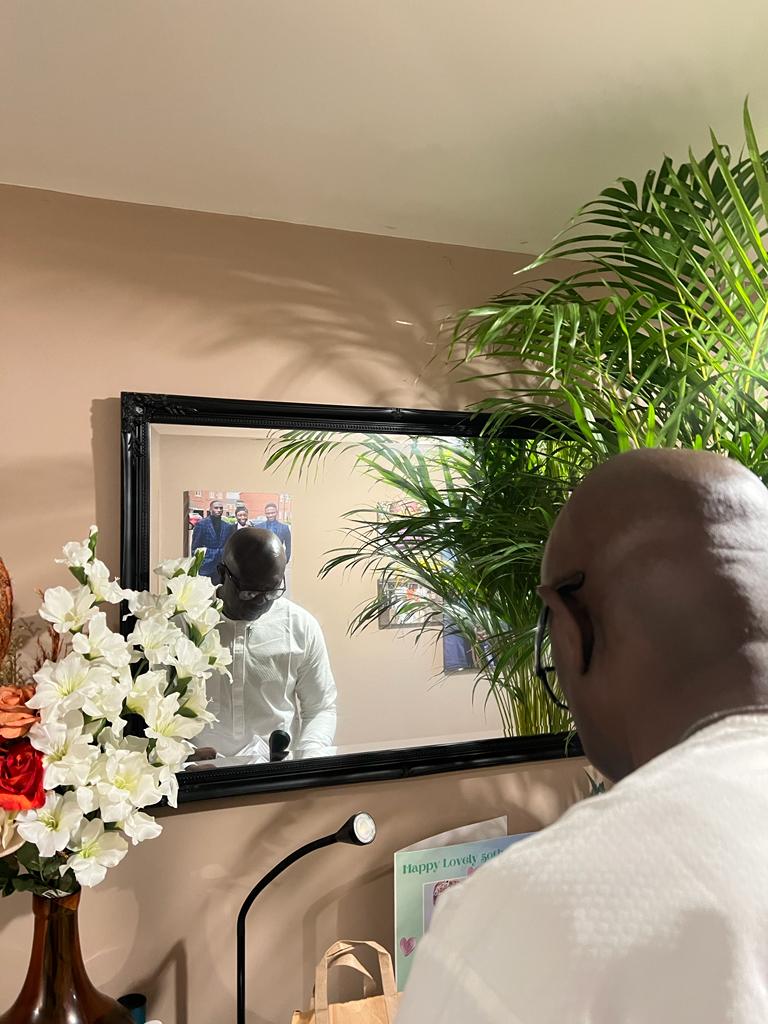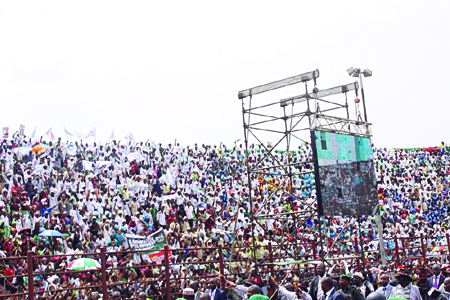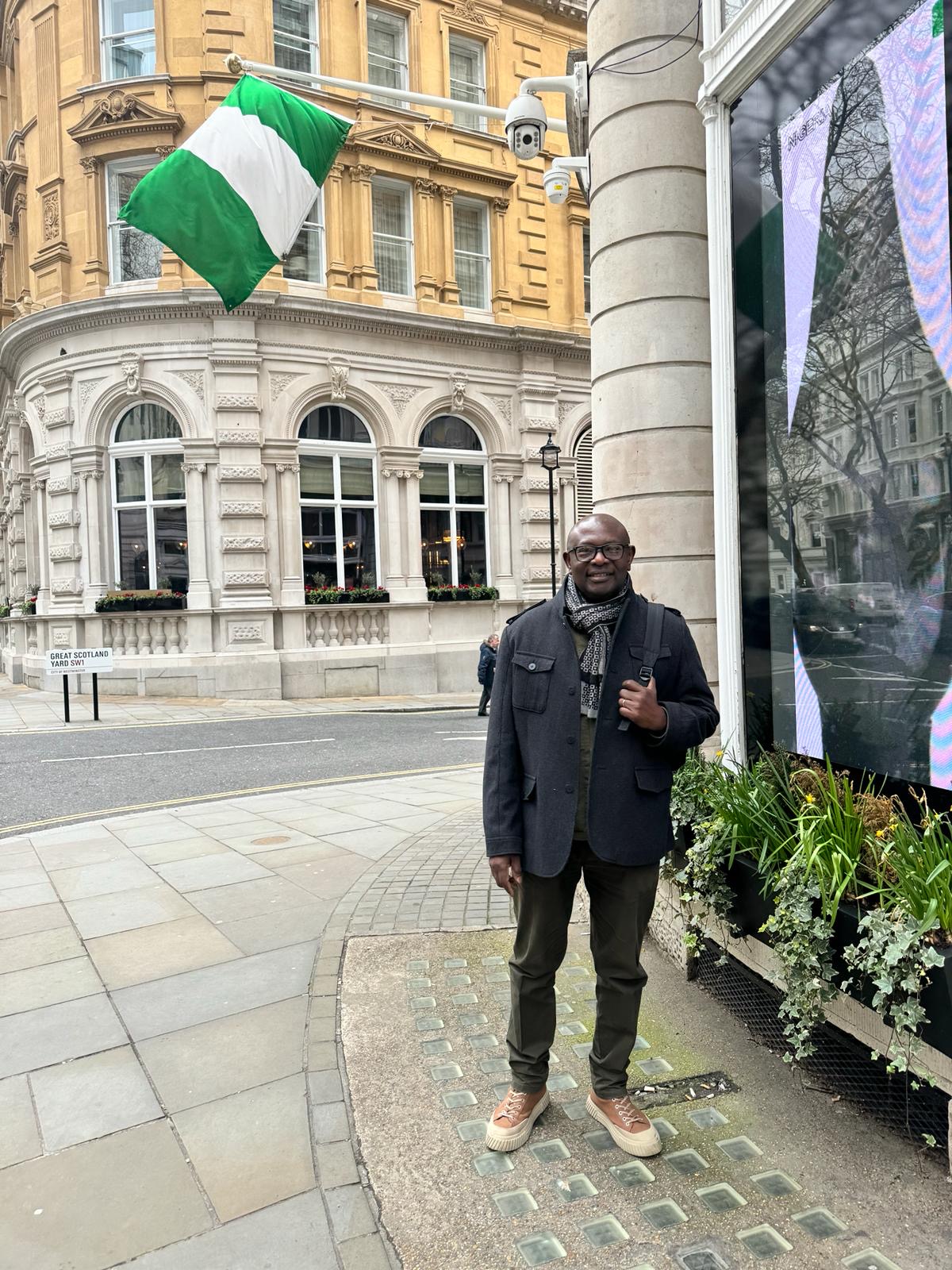By M. Babajide-Alabi
By this time next week, the “first leg” of the 2015 Nigeria General Elections would have been history. It would be recorded as being either the most peaceful or uneventful election or better still, an undecided election in Nigeria.
The world would have been reading the history of the General Election if it was held on the initially scheduled date of February 14. Instead what entered the history book was the unpreparedness of the Independent National Electoral Commission (INEC) coupled with the security situation in the Boko Haram controlled North Eastern part of the country. The shift gave the ‘gladiators’ extended lifeline and opportunities to catch up the hitherto ‘unreachable’ grounds.
On Saturday Nigerians will troop out to elect who runs the affairs of the country for the next four years. Analysts are hoping this would be the most engaging election in the country. The forecast, therefore, is that the polling booths will witness large turn outs of voters never seen before in the history of elections in the country. This anticipated large turn out is attributed mainly to the sensitisation of the “project” by the political parties and partly by INEC.
The year’s election preparations and participation are very impressive. It is a total deviation from what Nigerians are used to. From Abakaliki to Sokoto, from Maiduguri down to Odo Ayedun the topic of discussions in beer parlours, pepper soup joints, bus parks, schools, churches, mosques etc is the General Elections. From park touts to teachers, farmers, artisans, professionals etc, we seem to have suddenly realised what weight our votes carry, therefore, we are all involved.
In past elections, it was not uncommon for politicians to go “shopping” for voters cards as the D-Day approaches. This was an “acceptable” type of “shopping” among the political parties and the electorates, especially the millions of unemployed, but employable Nigerians, election times means money making. It was an open market trading, as politicians move from house to house, buying cards off registered voters. And where a voter was not approached, it falls on him or her to “advertise” the product to them.
For added value, the “patient” voters waited till the last day before “putting in their tenders” to attract the highest bidders. These set of voters “dispose” of their “conscience” on the voting queue. They exchange their voting rights for N500, N1000 or more depending on their “bargaining powers”. It was the usual practice for voters to have more than one voters card in their “kitty”. The more you have the more money you make.
Technology seems to have changed the way elections are going to be conducted in Nigeria. The Independent National Electoral Commission (INEC) “techie” officials came up with the idea of Permanent Voters Card (PVC) and smart readers. It sounds so easy, but the test run earlier this year has shown that the system may be fraught with a lot of inadequacies. As things stand now, INEC or government has not proposed a return to the manual thumb printing as widely used all over the world, even in older democracies.
In 2015, INEC, the politicians and the electorates seem wiser, and this has reflected in the preparations. The politicians have realised that relying on their ability to “speak” directly to the electorates in whatever form or shade is better than trying to manipulate the “weakness” of the electoral system. They have come to understand that, rather than send their hard core supporters for “ballot box snatching” training as it was before, they are better off laying out what they have to the electorates.
The voters, on the other hand, are beginning to understand that active participation in the process is what is needed to put Nigeria among the “serious-minded” democracies of the world. This is why, unlike in the past, we are raising our voices everywhere, including the social media and demanding the best for the country. We are not selling our PVC but hoping to make good use of it.
It is sad, however, that among our politicians, there are a few old practices that have refused to go away. Unlike what is obtained in sane societies, politicians still believe they have to give “something” out to the electorates to curry their favours. They must have reasoned that making false promises is no longer enough to win elections.
It is interesting to see politicians use these “mob tactics” to campaign for votes, it is, however, disheartening to see the “learned” ones among them descend so low in joining the bandwagon. A practice that seemed to belong to the “First Republic” has now resurfaced in the second decade of the millennium to woo voters.
Sometimes last week, there were pictures of the Lagos State Governor Raji Fashola in company of the APC Gubernatorial candidate Ambode on a campaign trail in the Alimosho area of the state. It was good to see both of them on the open roof jeep riding through the suburb. However, the disturbing part of their campaign was seeing children pushing, shoving and scrambling for sweets and noodles in dirty open drainage (gutters).
While, there are no conventional ways of campaigning for votes, these two decided that “stoning” of the electorates with sweets and noodles was a clever one. Right thinking Nigerians have condemned this “show of shame” on Lagos streets, and wondering what type of low level the pair took election campaign to.
One is bound to wonder at the thought process of these politicians. To an ordinary human being, sitting on top of a open roof car and throwing “goodies” in the air will achieve only one thing – commotion. To the politician, doing this is the way he can be accepted as the incoming messiah, and the only method of showing the masses be really cares.
This idea of distributing foods prior to election is fast catching on with the politicians and electorates. Many have argued that this is accepted, as these politicians are satisfying the needs of the electorate. This is understandable, but on the other hand, if these politicians put in place masses oriented programmes, they would not need to line up the electorates to collect noodles, rice etc at election times.
The masses are most vulnerable because of the abject poverty these politicians have put them. As a result, rather than go another day without meal, they would scramble, push and shove to get their hands on the noodles, sweets, rice, etc, thrown out by these politicians. An hungry citizen care less where a politician throws a packet of noodles, as long as he can lay his hand on it, that is his next meal.
But the politicians are celebrating fully happy they need no accountability with the electorate for the next four years. The electorate will not see them again until then.
It is a shame!
R








2 Comments
What baffled me with the fight to win the presidency is that no one is talking about where money to run the country will come from. I detest corruption in the polity. But how will people fight corruption if the money to obtain forms, to woo electorates and buy votes, and campaign funds comes from corrupt members, bank wreckers, 419, oil bunkers, drug dealers, gun runners, failed generals and ethno-religious fanatics etc? Presently Nigerians are being con-ned to vote for the 2 worst party from the top. And no one have the answer to the collapsing oil market and the vast terrible unemployment. We need prayers men
My Crowd Is Bigger Than Yours - A Journey Back In Time | Morak Babajide